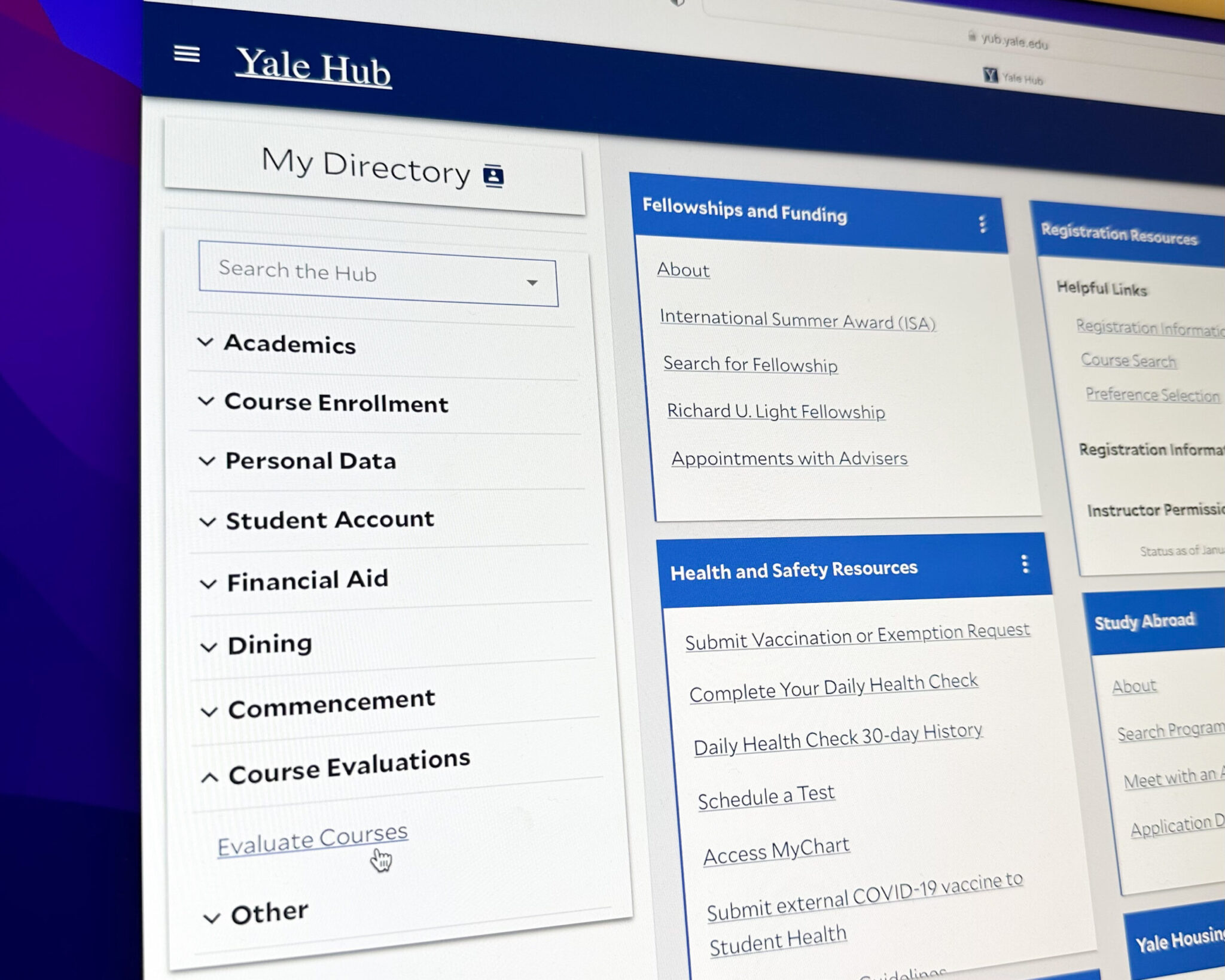Error allows students to see grades without evaluating courses, Faculty Senate plans to discuss
A Yale Hub error allowed students to view their grades for the fall semester without first completing their course evaluations, which has raised concerns among faculty senate members.

Michael Paz, Photo Editor
Yale Hub’s grade suppression mechanism temporarily failed over the winter recess, allowing some undergraduate and graduate students to see their grades for the fall 2023 semester without submitting a course evaluation.
Typically, Yale Hub’s platform requires students to go through a course evaluation form before allowing access to their grades. In order to see the grade received in a course, a student must either fill out the form or indicate that they would like to skip it for the given course.
“It has been longstanding practice to suppress grades from student viewing until course evaluations have been completed, and there is no change to that policy and practice,” Shonna Marshall, the University registrar, told the News. “While there was a period of time where Yale College and graduate school students could have seen their grade before submitting an evaluation, overall response rates were not significantly impacted.”
When asked for numbers to substantiate the claim that response rates were not “significantly impacted,” Marshall told the News that the data did not belong to the registrar’s office, and they could not share it.
Faculty of Arts and Sciences Dean Tamar Gendler did not respond to the News’ request for comment.
According to a poll that the News posted on the anonymous campus chat app Fizz, 70 percent of 2,946 total respondents reported that they did not have to fill out an evaluation form before accessing their grade.
According to the University Registrar’s Office, the issue was resolved as soon as it came to their attention. The News was able to confirm that students could see their grades without submitting a course evaluation as late as Jan. 4. Before then, students still had access to the evaluation forms but had to go out of their way to fill them out on Yale Hub.
Based on online data available through the Online Course Evaluation system, response rates for the fall 2023 semester across five departments — Economics, History, Political Science, Computer Science and English — fell below those of the previous three semesters. However, the data indicate a similar, though not as drastic, dip in responses in Fall 2022, whose cause the News could not immediately determine.
Professor Meg Urry, chair of Yale’s FAS senate, confirmed that the Senate is monitoring the issue and will likely discuss it formally at their next closed meeting.
“Our biggest concern is the faculty for whom teaching evaluations can have a big impact, namely, instructional faculty and junior faculty,” Urry wrote. “If the response rate for Fall 2023 evaluations is lower and/or the evaluations are more critical than usual (both of which could vary hugely by course, thus aggregate statistics may not be sufficient to judge), we need to know that before making judgments that depend on evaluations.”
On the form, students are asked to evaluate both professors and their teaching assistants for the course on a one-to-five scale based on a variety of factors, including level of engagement, the course’s organization and the clarity of feedback they received throughout the course.
Students are also asked to leave comments and elaborate on these questions in writing.
“I noticed after I saw my grades that I wasn’t asked to do the evaluations this year,” Andres Rincon ’25 said. “So I didn’t fill them out this year.”
These reviews from the evaluations become available for viewing on catalogs such as Yale Course Search, the University’s official course registration system, and CourseTable, a student-run website that allows students to browse through detailed course information. These reviews may be used to make administrative decisions about faculty such as assessment and hiring.







